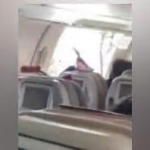
New Delhi – As Prime Minister Pushpa Kamal Dahal Prachanda prepares for an official visit to India, there is an air of caution surrounding the trip due to the volatile political situation in Nepal. The country has experienced two successive changes in the ruling coalition since December 2022 and has been plagued by corruption scandals. Despite these challenges, sources have confirmed that a four-day visit is expected to begin on May 31, during which India and Nepal will engage in discussions and sign multiple agreements.
One of the key agreements likely to be signed during Prachanda’s visit is an energy deal, according to The Kathmandu Post. Additionally, the two sides are expected to conclude at least six agreements, which may include cooperation on water and agriculture. The visit has been under discussion for the past three months, with Prachanda expressing his intention to visit India on multiple occasions. However, the Indian response was initially slow, with officials indicating that the visit would take place “in fullness of time.”
Prachanda’s government came to power in December through a dramatic coalition somersault, forming an alliance with the CPN-UML led by former Prime Minister K.P. Sharma Oli. This move allowed Prachanda to become Prime Minister for the third time since the monarchy ended in Nepal. However, the leftist coalition disbanded in February due to a disagreement over the presidential candidature. Since then, controversies within the revived Nepali Congress-Maoist Centre coalition have drawn attention to the power dynamics within the post-monarchy elite.
Amidst these developments, Prachanda’s past engagements with India may play a crucial role in advancing the agenda for his visit. Prachanda has a long history as a Maoist leader in Nepal and has been a contender for the top post since the Maoists joined mainstream politics in 2005. He previously served as Prime Minister in 2008 and again from 2016 to 2017 when he dealt with India-Nepal relations following the economic blockade imposed by the Madhesis in Nepal’s plains.
Although India has yet to formally announce the visit, Nepal’s Ambassador to Delhi, Shankar P. Sharma, met with India’s External Affairs Minister S. Jaishankar, expressing their commitment to strengthening the multifaceted relationship between the two countries.
In addition to the political dynamics, the Prachanda government has been in the spotlight for reportedly negotiating a multi-billion rupee defense deal with China. While Nepal has not officially announced the arms deal, there are ongoing discussions regarding its status. Independent MP Amaresh Kumar Singh and leader of the Rashtriya Swatantra Party have called for an independent investigation into the matter.
As Prime Minister Prachanda embarks on his visit to India, both countries will seek to navigate the complex political landscape and bolster their bilateral ties. The signing of energy and water pacts, among other agreements, will likely contribute to strengthening cooperation and addressing common challenges in the region.






